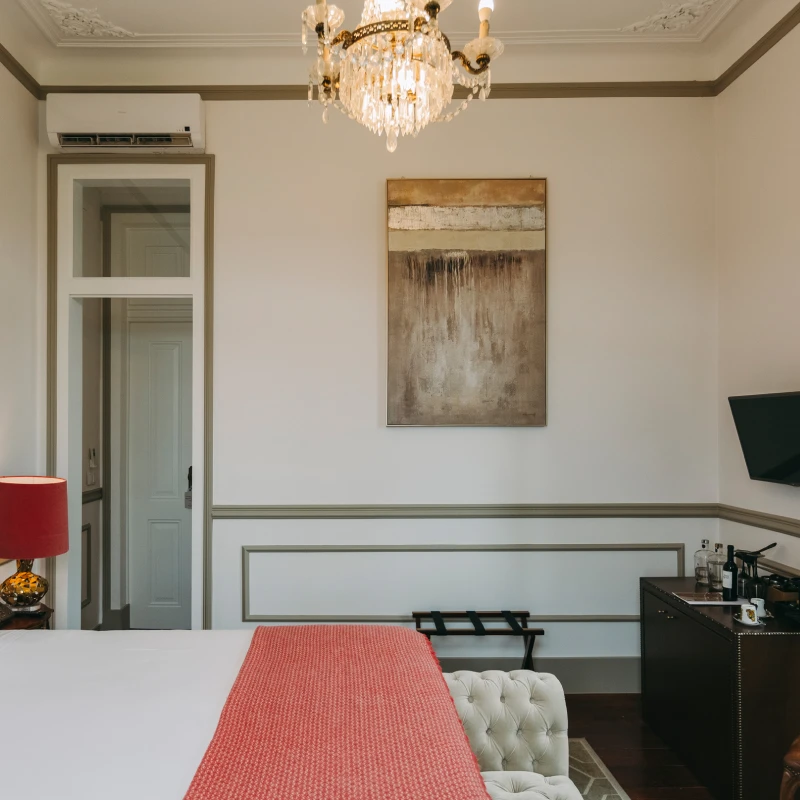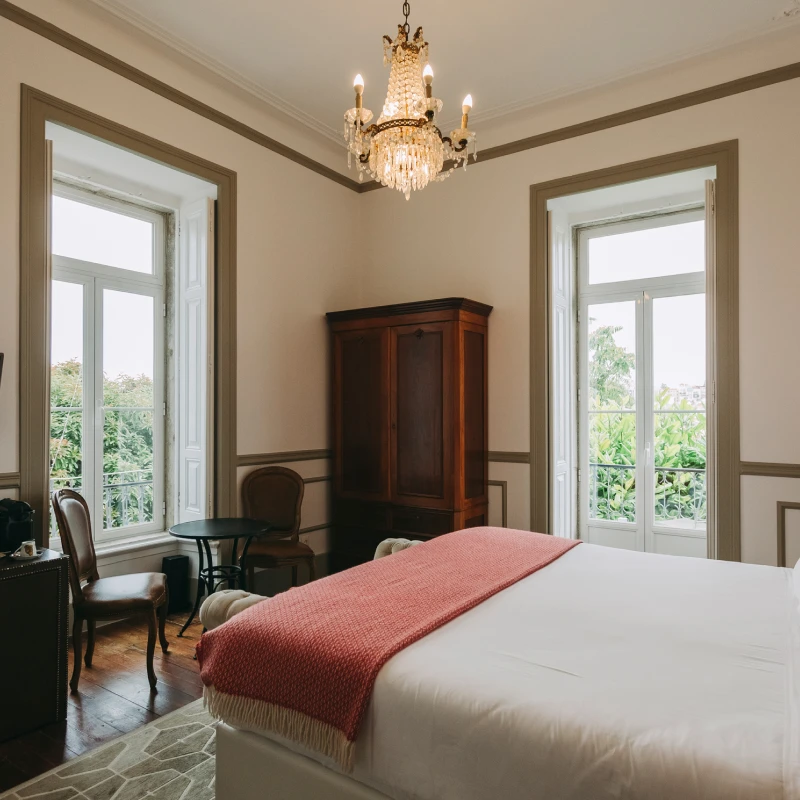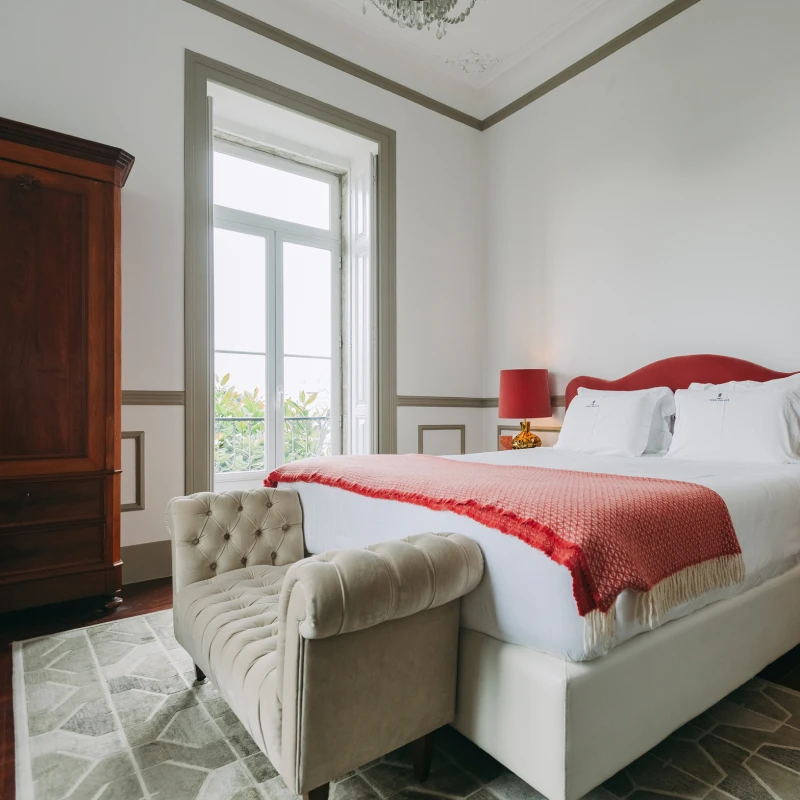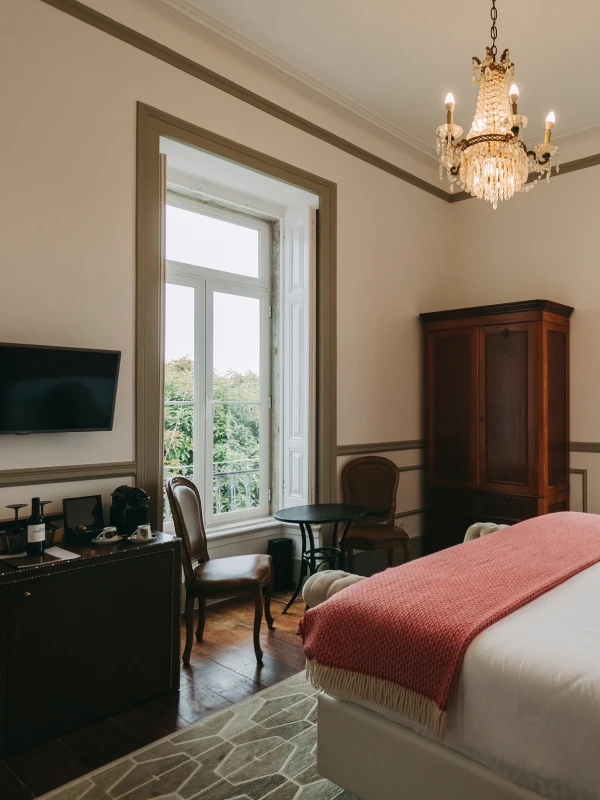Home > Dom Pedro I
Dom Pedro IV
October, 1798 (Lisbon, Portugal) – September, 1834 (Queluz, Portugal)
Decorated in light tones, this room conveys serenity and tranquility. Surrounded by windows you will be able to obtain fantastic views of the city from different perspectives. With a nice balcony, it becomes a charming place to relax.
The Master With View – D. Pedro I combines space, light, and comfort for up to two guests. The décor blends crisp white tones with touches of red, creating a fresh yet inviting atmosphere. Two single beds are complemented by a sofa at the foot of the bed, while the private balcony offers charming city views.
The bright bathroom continues the clean aesthetic, featuring a large shower, elegant finishes, and a stylish rug. Thoughtful amenities include a Delta coffee machine, minibar, TV, free Wi-Fi, air conditioning, hairdryer, and safe. Throughout your stay, complimentary coffee and water ensure a relaxed and pleasant experience.
See our other rooms in the Master with a View category
- Up to 2 People
- 30 m2
- 2 Single Beds
- Balcony
- City View
- Coffee Machine
- Mini Bar
- Television
- Free WiFi
- Air Conditioning
- Hairdryer
- Safe
- Offer of Delta Coffee and Water throughout your Stay








In Honor of...
Dom Pedro IV

Dom Pedro IV, also known as the Liberator in Brazil and the Soldier King in Portugal, played a unique role in the histories of two nations. Son of King João VI and Queen Carlota Joaquina, he was born in Lisbon but came of age in Brazil, where the Portuguese royal family had taken refuge during the Napoleonic invasions.
In 1822, Pedro declared Brazil’s independence from Portugal and became its first emperor as Dom Pedro I of Brazil, ushering in a constitutional monarchy. Just a few years later, upon his father’s death, he inherited the Portuguese crown as Dom Pedro IV, but abdicated in favor of his daughter, Dona Maria II, to avoid uniting both crowns.
His legacy in Portugal is defined by his fight against absolutism. He returned to Europe to lead the liberal cause in the Portuguese Civil War, defeating his absolutist brother Dom Miguel and restoring constitutional monarchy.
Dom Pedro IV died in 1834, shortly after the war’s end. Fulfilling his final wish, his heart is preserved in Porto, the city that stood by him, while the rest of his body rests in Lisbon. His life was one of courage, ideals, and unwavering commitment to liberty.









